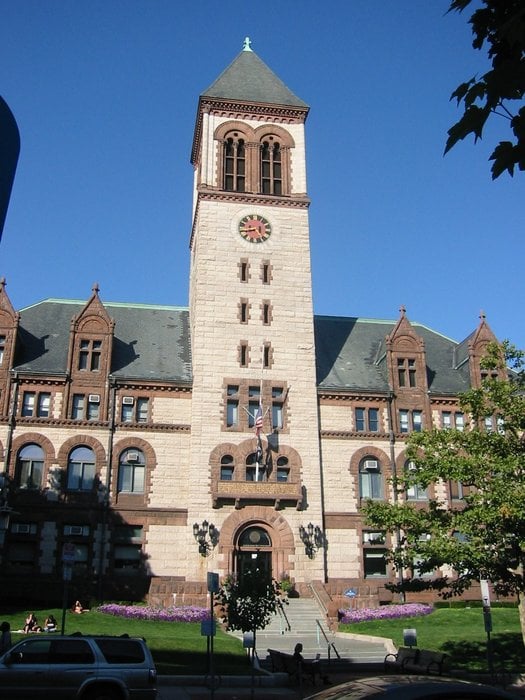By Kathryn A., Steering Committee
I’m heartened by the discussion I’ve seen unfolding over the past weeks, starting with the Electoral Working Group meeting, and then continued with the open letter signed onto by some of our comrades. This sparked discussions in person and across a variety of other platforms. I’ve seen other members take considerable time to write out their opinions and respond to my questions with patience and understanding, even when it was clear that some of our opinions differed. One person even took the time to specifically call out that they believe we have a shared goal, just with different ways of getting there. These conversations have largely been comradely, understanding, and focused on moving forward together, and give me hope for our chapter.
The main points of the debate, as I understand them, are:
- We need to bring the endorsement process to a discussion/vote at the General Meeting.
- The endorsement process as outlined doesn’t have enough guarantees that voters will be meaningfully exposed to various viewpoints, especially those that may be the minority.
- Online voting itself is a potentially isolating procedure that could reinforce the individualism our capitalist society encourages, rather than emphasizing the collective knowledge and strength in solidarity we hope to build through socialism.
I’ll try to engage with these as best I can.
GM Vote on the Endorsement Process
It’s my understanding, after last night’s GM Planning Committee meeting, that the endorsement process itself will be brought to a discussion and vote at the GM. I think this is good for our chapter right now, and I also think moving forward it’s reasonable to try and figure out what things from WGs need to be voted on by a WG, the GM, the SC, or some other body. Initial tensions around the open letter seemed to stem from fears that people wouldn’t have input into a process where they felt their voice was needed. As a chapter, we should discuss our expectations for what constitutes an administrative decision appropriate for the Working Group level, and what constitutes a political decision appropriate for a WG versus for our highest body, the General Membership. What appeared to some members of the Electoral Working Group to be a procedural decision designed to elicit engagement from the whole chapter was taken by some to be a much more significant change. We need to keep talking about which decisions fall into which category as our chapter develops, and especially as we begin the chapter priorities process that’s currently been approved by the SC.
The Endorsement Process
The endorsement process as currently outlined has the following official points of engagement:
- Member submissions of candidates/races to consider (only limitation being state rep races due to capacity and a desire to focus on the smallest possible race).
- Member created survey, including a vote (possibly online) on the final survey questions.
- WG summaries of candidate responses (sent to email, Slack, and on paper at in-person meetings), providing an opportunity for any and all WGs to focus on their analysis of a candidate’s responses.
- Membership vote online on which candidates to invite to a forum.
- Candidate’s forum with member-generated questions.
- Recordings and postings of the forum on email and Slack, providing an opportunity for discussion.
- GM Endorsement discussion.
- Vote on endorsed candidates, potentially including internet balloting.
Since this was proposed at the Electoral Working Group meeting about endorsements, I’ve heard the following suggestions for making this process even more robust and member-oriented:
- Candidate research to be distributed to the membership, providing an opportunity to bring a candidate’s past into the discussion.
- Including pro and con statements on internet ballots.
- Distributing notes, recording, and/or summaries of the GM discussion to membership prior to a vote.
- Ongoing development of what candidate accountability looks like.
- Making explicit the “No endorsement” option in the final vote.
This is to say nothing of the myriad informal/semi-informal spaces we already have for discussion (before and after meetings, one-on-one conversations, Slack, emails, working group lists, phone conversations, etc.). Few (though certainly some) of these options are entirely online. The process before us is neither in-person nor online — it’s some option in between. The world will keep changing, and we must continue to adapt time-tested strategies of organizing to the growing opportunities for building solidarity.
The letter’s signatories are correct in saying that there is no guarantee that any of our members will be involved in all of these discussions, formalized or not, before online balloting, and there is no guarantee they will have heard or fairly considered every viewpoint. There’s not, and I don’t think there should be a formal guarantee beyond our faith and trust in our comrades. When it comes down to it, that’s really what DSA is built on.
Instead, it’s our responsibility to make the importance of these meetings and discussions felt and heard, to mobilize members to come to or otherwise contribute to the process, and to broadcast our viewpoints to the membership at large. This burden isn’t entirely placed on those in the minority, either — the process for submitting analyses of candidates and their responses, the discussion at the GM itself, and the proposed addition of pro/con statements and a “No endorsement” option to online ballots all provide formal protections of potential minority viewpoints within the chapter. The protection of the minority voice is being taken seriously within DSA — what more additions to this process are necessary to prove this? The preservation of in-person meetings and the relationships and solidarity built there are similarly critical to DSA — again, what additions or edits to the process are necessary to prove this?
Member Engagement and Collective Struggle
Finally, there absolutely are members on our rolls who are more active in DSA-specific meetings, working groups, and organizing. And there are some who haven’t yet become regulars at DSA-specific events. This latter category has been referred to as “paper members” or “inactive” members. It’s important to challenge this narrative. There are so many ways to build socialism within and without DSA, and we should work to build connections until we’re no longer ancillary to so much of the movement to rebuild society. This means those of us who have found some specific work in Boston DSA should be reaching out to less active members with the hopes of learning how we can involve them in our work, or support them in theirs, given their unique position, background, and connections to other organizations or activism, and thereby connect more members more deeply to DSA while strengthening the organization itself. As good organizers, we can’t leave members themselves responsible for not coming to a particular meeting or engaging in socialism in a particular way. We must instead reflect on our own programming and approach AND reach out to members to determine what initiatives would make direct DSA involvement more meaningful for them. We don’t know why some of our 1,100 members aren’t regularly attending meetings — all we know for sure is they agree with the principles of Boston DSA enough to meet our agreed-upon criteria for membership.
As an organization, I believe we have a responsibility to guarantee each member the opportunity to vote on important matters, and must provide the resources to make that vote an informed one. An internet ballot is no more or less informed than an in person one. There’s no guarantee that a person at a meeting has mentally engaged with a particular viewpoint in a meaningful way. The proposed process, by including online balloting, provides both opportunities and mandates to reach out to the 1,100 members of Boston DSA to encourage this engagement. The proxy process shouldn’t be eliminated — it provides important opportunities for remote comrades to participate in the debate and procedure of an in-person meeting in real time beyond just the vote. Internet balloting isn’t a replacement for proxy services — it’s an addition, and a meaningfully different one. It places the majority of the burden for enfranchisement on the organization, rather than its members, and it proactively and purposefully extends this opportunity to every member in DSA.
This is far more difficult than reaching out to the few hundred people who regularly attend DSA meetings — it’s also the kind of organizing that is critical to practice in the process of creating a militant movement capable of winning the socialist society of our collective hopes and dreams. Far from isolating our members, it encourages us to practice the skills necessary to reach massive numbers of people with our message and still work to come to a collective decision. It provides a stark reminder that it’s our responsibility to engage our comrades, not to dismiss or fear them. It pushes us to trust them to make good choices when provided with the information and the process to do so. Our chapter has already made us proud with its collective choices time and again — we’ve endorsed an important BDS campaign, unanimously passed an important resolution condemning FOSTA/SESTA, put two of our own members in office and begun learning what it means to then hold them accountable, and worked together to rework our outdated bylaws to include things like cop disclosures. I believe that our members will only continue to validate our trust and solidarity in greater numbers when afforded the opportunity to do so.



Leave a Reply